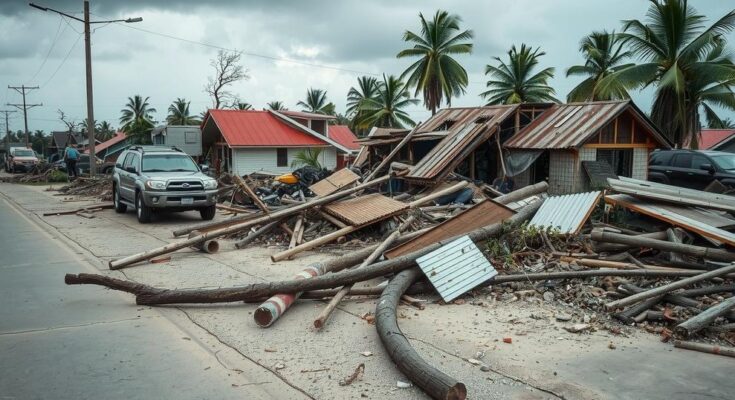Cuban officials expressed condolences following Cyclone Chido, which caused at least 60 deaths and injured over 230,000, primarily in Mozambique and Malawi. The cyclone hit several nations, leaving significant destruction in its path. Mozambique bore the brunt of the disaster with 45 fatalities, while Malawi reported 13 deaths.
In the wake of Cyclone Chido’s devastating impact in southern Africa, the head of Cuban diplomacy conveyed heartfelt condolences via his X profile. This cyclone has tragically resulted in the loss of at least 60 lives and left over 230,000 individuals injured, primarily affecting Mozambique and Malawi. Following a destructive passage through Mayotte, Cyclone Chido inflicted severe damage across Madagascar before further striking Mozambique and Malawi.
The most significant casualties were recorded in Mozambique, where 45 individuals lost their lives and over 184,000 were affected, especially in the northern provinces of Cabo Delgado, Nyassa, and Nampula. While Malawi also experienced substantial devastation, the loss was comparatively less severe, recording 13 fatalities, 29 injuries, and resulting in more than 45,000 people rendered homeless as they sought refuge from the cyclone’s onslaught.
Cyclone Chido recently wreaked havoc across several nations in southern Africa, particularly affecting Mozambique and Malawi after initially impacting Mayotte and Madagascar. The cyclone’s trajectory was marked by severe weather conditions and destruction, significantly affecting infrastructure, homes, and livelihoods. The scale of the disaster has prompted an urgent humanitarian response, highlighting the vulnerability of populations in these disaster-prone regions.
The aftermath of Cyclone Chido underscores the pressing need for international solidarity and support for affected regions. With substantial loss of life and recovery challenges, both Mozambique and Malawi require urgent assistance to rebuild and support affected communities. As global awareness grows, the emphasis on disaster preparedness and response becomes increasingly vital in mitigating such future crises.
Original Source: www.plenglish.com




